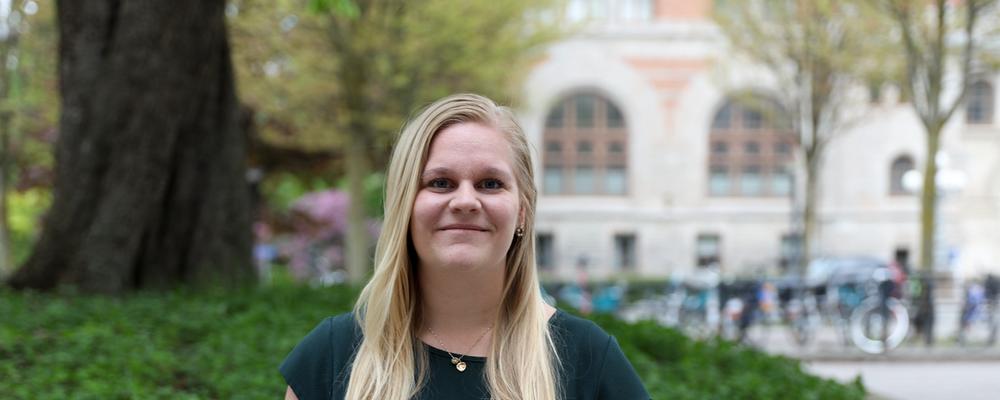What is it like to work for the European Commission?
- It’s incredibly rewarding. You work with people from different backgrounds – both in terms of education, experiences, and nationalities. It is sometimes intense work and hard in the beginning to get the hang of all the abbreviations, but definitely worth it.
Can you describe what a risk officer does?
-Well, it depends. In my case, I work with a unit that does the financial risk assessment of guarantees that the EU gives to developing countries. In practice, it means consistent checks of data, modeling meetings, and working on horizontal issues through meetings between different units.
How did you end up at the European Commission?
-During my time at the School, I took every opportunity to travel and see the world. I went on two exchange semesters; to Australia during my Bachelor’s and to Italy during my Master’s. This allowed me to take courses I would not have been able to at the School, but it also made me even more eager to work abroad after graduation. During my Master’s in Economics I also had the opportunity to do a 10-week internship as a course, which I did at the international section of the Ministry of Finance. This allowed me to have better insight into the work at the EU. Finally, I was also rewarded a Minor Field Study scholarship (which you can apply to both the bachelor’s and master’s thesis) to write part of my master’s thesis in Nairobi, Kenya.
After I finished my studies, I had the opportunity to do a Fellowship at UNICEF, through the University of Gothenburg. Therefore, I spent 6 months in Geneva, Switzerland, working on coordinating child protection in emergencies. I then spent a semester at Praktikantprogrammet (with Latinamerikagrupperna) learning about issues with human rights and the environment, where you usually do a 5-month internship to a local organization in e.g. Latin America. Unfortunately, this did not happen due to Corona, but I did get accepted to do a Blue Book Traineeship at the EU Commission, which I did instead. After 5 months at the Commission, I returned to Sweden as a research assistant for Thomas Sterner in Environmental Economics. Ten months later, I got a job as a contract agent same unit as I did the traineeship at INTPA, EU Commission. A combination of dedication and luck brought me to my current job at the EU and I am really happy I ended up working for the EU Commission, only three years after my graduation.
How has your degree from the School prepared you for your work tasks?
-My current job is more focused on Finance rather than Economics, but I am still using my analytical skills and background especially micro- and macroeconomics for understanding the basis of the credit risk analysis we do. Moreover, my degree in economics helped me get the jobs I had before the current one and is a great basis for any job within the EU since it is broad. However, the EU has so many different departments – so any degree is welcome.
What are your recommendations for students who wish for a career at the European Commission?
-First of all, just apply! Unfortunately, Swedish people do not apply enough, afraid that they will not be skilled enough to get it. Also, if you do not get your dream job on the first try – get some experience in another job and apply again later. For a career in the EU, it is always positive with other language skills besides English, even if not required (I work in English), so start already with Duolingo/join IntU/take an extra course to get those language skills!
Moreover, for an EU career at the Commission, doing a Blue Book Traineeship is one of the best ways. You can apply twice per year after you have finished your bachelor’s. Here it is great with international experiences (such as an internship and/or an exchange semester), other experiences, and a master’s and/or language skills also gives extra points.

